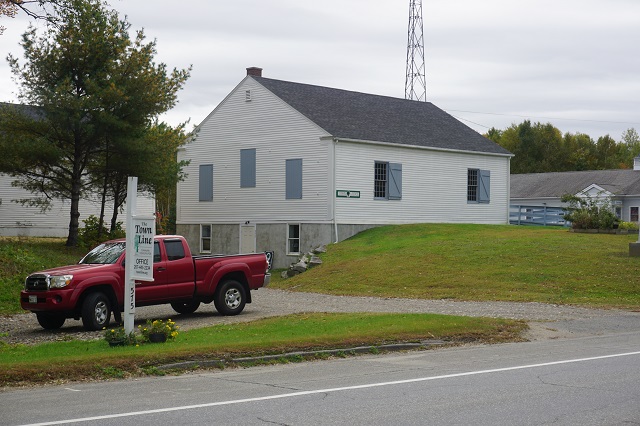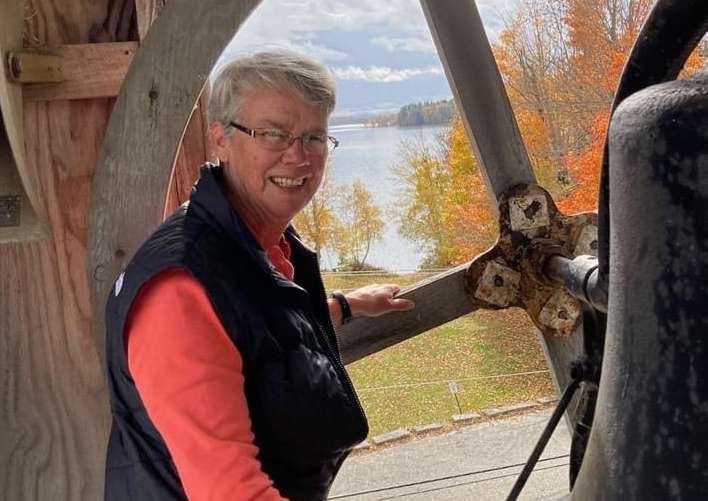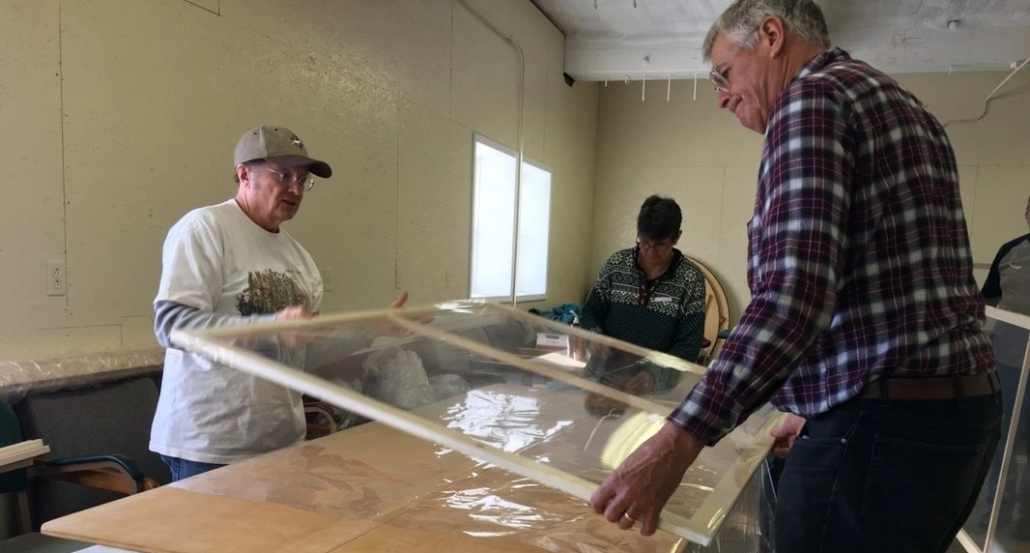At their Oct. 24 meeting, China select board members heard a presentation from Delta Ambulance executive director Timothy Beals about proposed fees to be charged municipalities the organization serves.
There are 14 municipalities, Beals said, and Oct. 24 was his fourth presentation; he had previously been to Windsor, Smithfield and Vassalboro (see the Oct. 20 issue of The Town Line, p. 2).
He summarized the history and activities of the non-profit organization, emphasizing its high-quality service. Delta Ambulance provides emergency services in response to 911 calls; it also uses its vehicles for transports from one medical facility to another, locally and out of area as needed.
Financial support has come entirely from insurance payments, which fall steadily farther behind expenses, he said. Recently Waterville and Winslow have started their own ambulance services, decreasing Delta’s call volume and therefore its revenue. Delta has responded by reducing staff, but still cannot make ends meet; hence the need to start charging municipalities.
The planned $15 per resident charge – lower than the fee charged by any other Maine service he mentioned – will cost China taxpayers about $66,000 in the next fiscal year, he expects. In recent years Delta has been averaging more than 400 China calls annually.
Delta’s governing board plans to start the fees Jan. 1, 2023, but they will be adapted to each municipal fiscal year. China will be asked to include funding in the 2023-24 budget that takes effect July 1, 2023.
Board members and Town Manager Rebecca Hapgood had many questions. For example:
- Wayne Chadwick asked if the $15 per resident charge was negotiable. It’s “pretty firm,” Beals replied; and, he added later, likely to increase in 2024-25.
- Hapgood asked if Delta’s board of directors could have more municipal involvement than the current five out of 13 seats. A possibility to be discussed by the board, Beals replied.
- Select board chairman Ronald Breton asked about multi-year contracts, to simplify municipal budget planning. Another board of directors’ decision, Beals said.
- Hapgood asked if the fee would increase if some of the 14 municipalities did not pay. Yes, Beals said, but by an unknown amount, because non-paying municipalities would not be served, reducing expenses.
No dollars, no emergency ambulance service. “It’s a hard thing for me to say,” Beals said, “but you can’t charge one town and not charge another.”
Beals said the response from other boards has been “understanding.”
In other business Oct. 24, select board members considered proposals from B. R. Smith Associates (BRSA), of Presque Isle, for building plans for a town office addition (see the Sept. 15 issue of The Town Line, p. 2). After discussion of options, they voted unanimously to spend up to $11,000 to have the company design a records storage building plus prepare a concept plan for a second addition in the future.
Municipal Building Committee chairman Sheldon Goodine explained that the storage building will be a “vault,” climate-controlled and fire-protected. Combining the full plan and the concept should help prepare for future interconnections, for example in electrical and heating systems.
Goodine predicted the additional expansion would be needed within two or three years.
“Not if I’m still on the board,” Chadwick replied.
By another unanimous vote, select board members sold the unneeded office trailer (former portable classroom) to the only bidder, for $50.
Hapgood issued another reminder that absentee ballots for Nov. 8 voting are available at the town office. The last day to request an absentee ballot is Thursday, Nov. 3.
The next regular China select board meeting will be Monday evening, Nov. 7. It will be Breton’s last meeting, as he is not a candidate for re-election.
New fee on brush at transfer station
by Mary Grow
Beginning Tuesday, Nov. 15, people disposing of brush at the China transfer station will be charged a fee of two cents a pound. Vehicles carrying brush will enter and leave over the scale so the weight can be measured.
Town Manager Rebecca Hapgood explained at the Oct. 24 select board meeting that China used to get rid of its brush for free: a company would chip it and haul away the chips to sell. This year, she said, because of changing economics, the company charged a $4,000 fee.
By combining China’s and Vassalboro’s brush piles, China’s charge was halved, to $2,000 – still more than she appreciated paying, Hapgood said.
Now that disposal costs the town money, select board members voted unanimously to pass the cost on to transfer station users.
Hapgood said experiments in anticipation of the new fee showed most people will pay between two and five dollars.
 To the editor:
To the editor:


 COMMUNITY COMMENTARY
COMMUNITY COMMENTARY

